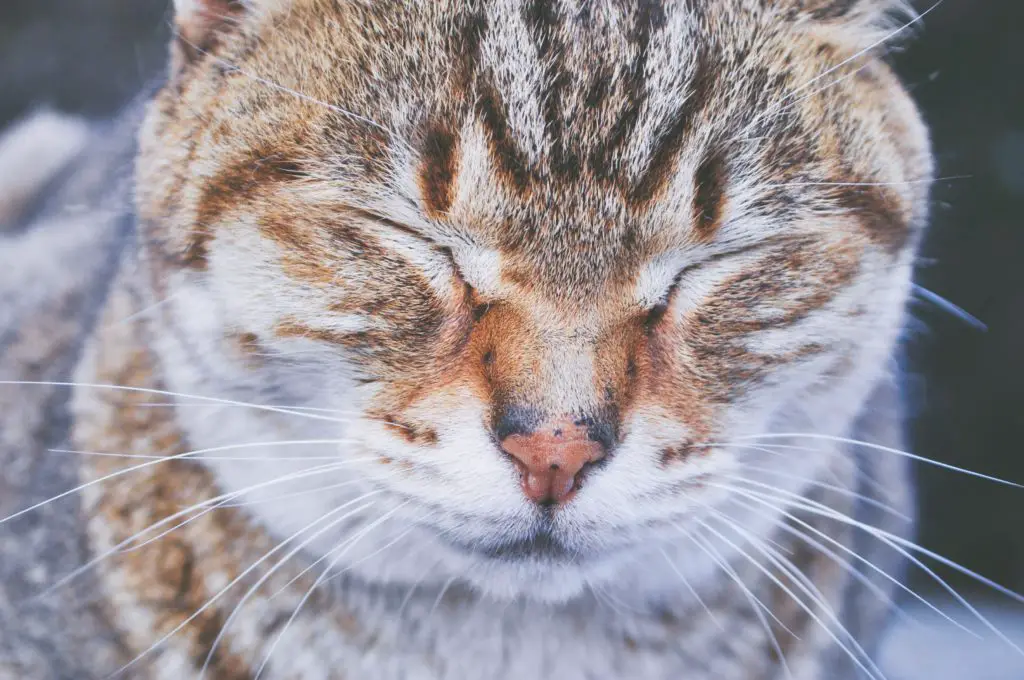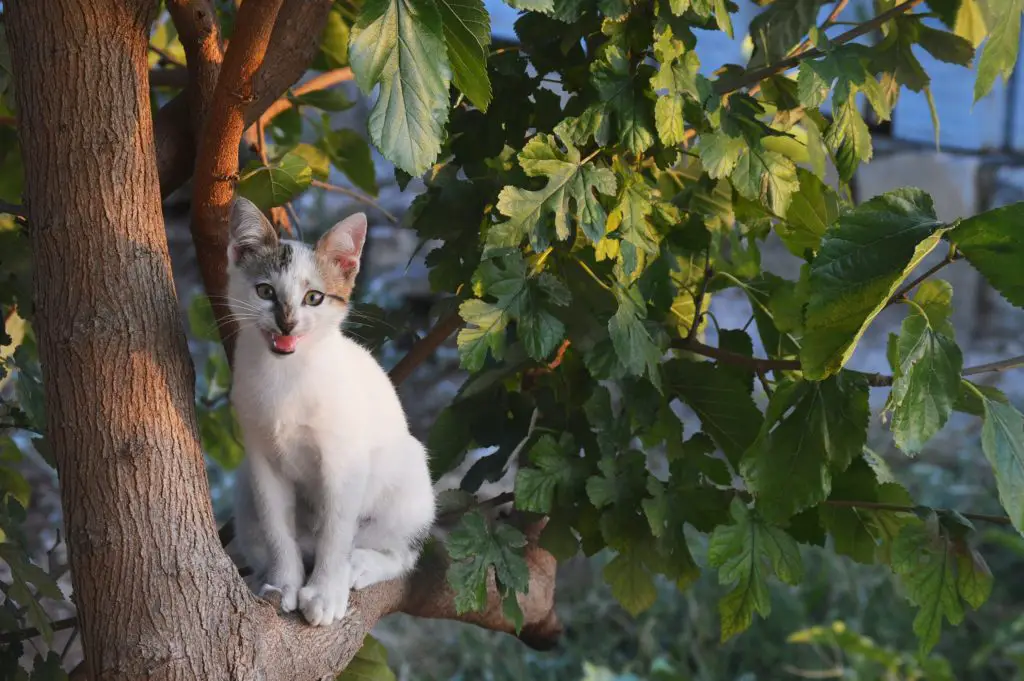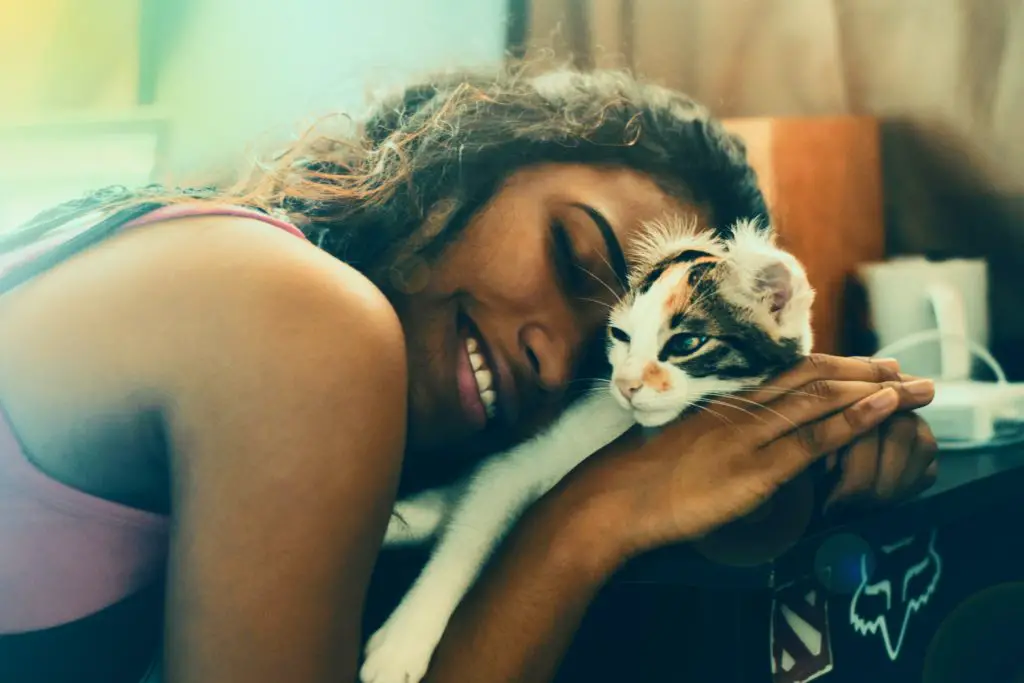Have you ever spotted your cat eating grass and wondered what it is they are doing? You’re not alone. It isn’t that out of the ordinary for our cats to take a few bites out of the lawn while they are in the backyard. A little of this vegetation now and then shouldn’t do them any harm. So, why do cats eat grass? This can vary from factors related to their general enjoyment of the taste, smell, texture, etc, to the possible health benefits, and even their ancestors’ habits. There are nutrients in grass that might be lacking in their diet. Or, they may simply use the grass as a way of maintaining their digestive health. However, it is important to keep an eye on your cat’s grass-eating habits and understand a little more about why they do this.
Why is your cat so keen to eat the grass in your garden?
Let’s start with why your cat exhibits this behavior. They wouldn’t start eating the grass unless they got some benefit out of it. These benefits can vary from factors related to their general enjoyment of the taste, smell, texture, etc, to the possible health benefits. There are nutrients in grass that might be lacking in their diet. Or, they may simply use the grass as a way of maintaining their digestive health.
Here are the most common reasons why your cat eats grass:
- To get more minerals, particularly folic acid, which is crucial to the cat’s digestive system.
- To improve their bowel movement, grass serves as a natural laxative.
- To induce vomit and get rid of the hairballs quicker.
- Grass eating used to help our cats’ ancestors to get rid of the intestinal parasites. Modern cats are unlikely to get them, but the habit to eat grass to solve that problem persisted.
Do cats eat grass to vomit?
This is an interesting question as there is a laxative effect in grass that can help cats with digestive issues and make it easier for them to bring up hairballs. You may see them bring up hair and grass after eating and while this looks unpleasant, it may have made your cat feel a lot better. Excessive vomiting, however, could be a sign of a bad reaction or overeating, so watch out for that.
So why does my cat eat grass but doesn’t throw up?
There is no guarantee of vomiting after eating grass. It all depends on the reasons for eating it. Some cats may chew on the grass because they like it or are bored, with no need to use the substance as any medical aid for furballs. Others will use it for extra vitamins and minerals and eat it as though it were a vegetable and a normal part of their diet.
Interesting fact. According to sciencemag.org, only 10% out of all observed cats ended up vomiting after eating the grass. So cats don’t always eat the grass to just throw up.
Are there any potential dangers to your cat’s health from eating the grass?
Now we have a better idea of why our cats like to eat grass, we have to consider whether this is such a good idea. Clearly, there are some benefits, but is it OK if my cat eats grass every day? A little grass now and then isn’t too bad. But, it is still important to keep an eye on your pet’s consumption habits and any changes in their health. You may also want to look at why your cat has the urge to get these health benefits from grass and what you can do to reduce that need.
Can grass make cats sick?
While a little bit of grass now and then isn’t going to have too much of a negative effect on your cat’s health, there is an additional risk factor for grass in your garden. It is harder to control the environmental conditions around an outside lawn and the potential chemicals, parasites, and other “added ingredients” on those blades of grass. The residue of pesticides and fertilizers could make some cats sick. Indoor cats, who may have weaker immune systems and sensitivities, could be worse off here than outdoor cats.
Is it better for indoor cats to eat cat grass?
These potential risks of indoor cats eating grass outdoors leads us to another important point about cats eating grass. There is an alternative to regular grass called cat grass. This mixture of species is a great way to create a small patch of grass within your home and minimize the risks outlined above. Cats can get the same benefits of enrichment, nutrients, and the chance to help themselves bring up furballs. At the same time, you can control environmental factors and limit the amount of grass grown to prevent overeating.
How often should cats eat grass?
Again, you don’t want your cat eating too much of this cat grass as they might end up with some gastric issues. Overeating may also be a sign of boredom or a lack of nutrients, both of which you can correct to minimize their reliance on grass. This cat grass, as with normal grass, should be a treat. Try and grow small pots that they can nibble at rather than large trays of the stuff.
You can learn more about how to grow cat grass and its potential benefits for cats in our other guide. Here you can find more information on growing it from seed without the need for soil and maintaining the grass.
Talk to your vet if you have any concerns about your cat eating grass.
You may be reading this having seen your feline friend munching away at a large patch of the lawn. Or, you may be worried that their obsessive grass eating is causing a knock-on effect on their health. The best thing to do is to talk to your vet. They can perform a physical examination on your cat to find underlying health issues, obstructions, or other problems. They can also help you provide the right nutrients in their diet to limit the need for grass supplementation.
Conclusion
Why do cats eat grass? In short, there could be nothing to worry about if you see your cat eating grass on the lawn. They might only do this occasionally cos they like the taste or have a furball to bring up. A little grass now and then can provide nutrients and enrichment. But, this is much better for indoor cats if it comes from a clean, well-maintained area of cat grass. Create a small patch for them in the living room, keep an eye on their eating habits, and see how a little grass in their diet can be a benefit rather than a concern.

My name is Katie, and I have had different pets at home for as long as I can remember. While I can definitely say I love all animals in general, my heart belongs to cats and dogs. I know you are supposed to choose one or the other, but I could never really decide. I’ve also owned hamsters and fish when I was a kid, and they filled my childhood with very delightful memories.




